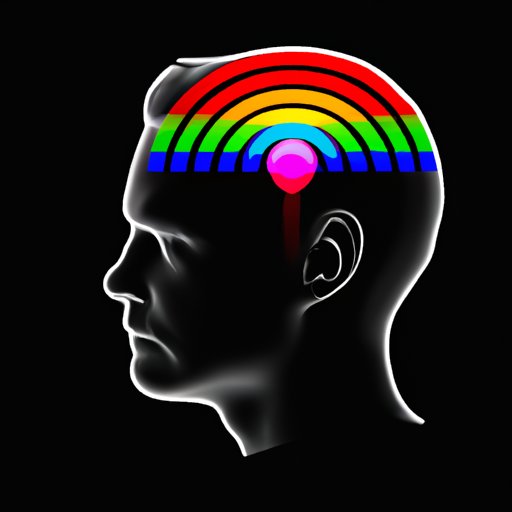
Introduction
Have you ever wondered what your mental age is? Mental age refers to the level of cognitive and emotional development of an individual, which may differ from their chronological age. Understanding your mental age can provide insights into your productivity, happiness, and overall success. This article will explore the concept of mental age, various ways to determine and improve it, and share real stories of individuals who have overcome mental challenges and increased their mental age.
How to Determine Your Mental Age: A Comprehensive Guide
Mental age is a concept introduced by psychologist Alfred Binet, one of the pioneers of modern intelligence testing. Mental age refers to the age group that an individual typically performs at in mental tests. According to psychologists, there are several ways to determine an individual’s mental age. These include analyzing their cognitive abilities, memory retention, and emotional intelligence. Mental age tests typically involve a series of questions that assess an individual’s level of intelligence, knowledge, and ability to reason.
Why Your Mental Age Matters and How to Improve It
Improving mental age can enhance an individual’s ability to think critically, problem-solve and adapt to new situations. Mental age can impact productivity, happiness, and overall success in life. Emotionally mature individuals tend to be more successful in their personal and professional lives. Tips and suggestions for improving mental age include engaging in cognitive activities such as reading, playing games, and taking on new challenges, as well as mindfulness practices such as meditation and journaling.
The Science Behind Mental Age: What it is and How to Calculate it
Mental age can be calculated by measuring the cognitive functions of individuals against their chronological age. This can be done using mental age tests, formal assessments, or self-reflection. Factors that determine mental age include memory retention, cognitive abilities, problem-solving skills, reasoning, and emotional intelligence. Some ways to increase mental age include practicing mindfulness, meditation, and engaging in cognitive and stimulating activities such as reading, gardening, and learning new skills.
Real Stories of People Who Have Successfully Increased Their Mental Age
Sara, a 45-year-old executive, struggled with stress and anxiety throughout her career. She began to practice meditation, mindfulness, and engage in stimulating activities such as reading and gardening. Over time, she found that her mental age increased, leading to better productivity at work and improved happiness in her personal life.
Mark, a 60-year-old retiree, began taking on new challenges such as learning a new language and reading challenging books. He found that his mental age increased as he was exposed to new ideas and mind-stimulating activities.
Assessing Your Mental Age: Tips from Top Experts
Experts recommend various tips for maintaining a healthy mental state, such as engaging in activities that promote cognitive and emotional well-being, such as meditation, exercise, and journaling. Common misconceptions about mental age include assuming that chronological age corresponds to maturity and intelligence, which is not always the case. Improving mental age requires self-reflection, self-awareness, and engaging in activities that promote cognitive and emotional growth.
Why the Concept of ‘Mental Age’ is Greater Than Chronological Age
Chronological age does not always correspond to an individual’s maturity level or cognitive abilities. Considering mental age in addition to chronological age can provide a more accurate representation of an individual’s overall cognitive and emotional health. Examples of individuals who exhibit higher mental age than their chronological age include child prodigies, individuals with cognitive disabilities, and emotionally mature individuals.
Conclusion
Understanding your mental age is an essential aspect of personal development. Mental age can impact productivity, happiness, and overall success in life. To improve mental age, it is essential to engage in activities that promote cognitive and emotional growth, such as meditation, exercise, and learning new skills. We encourage readers to assess and prioritize their mental health, engage in mindfulness practices, and take on new challenges to improve their mental age.


